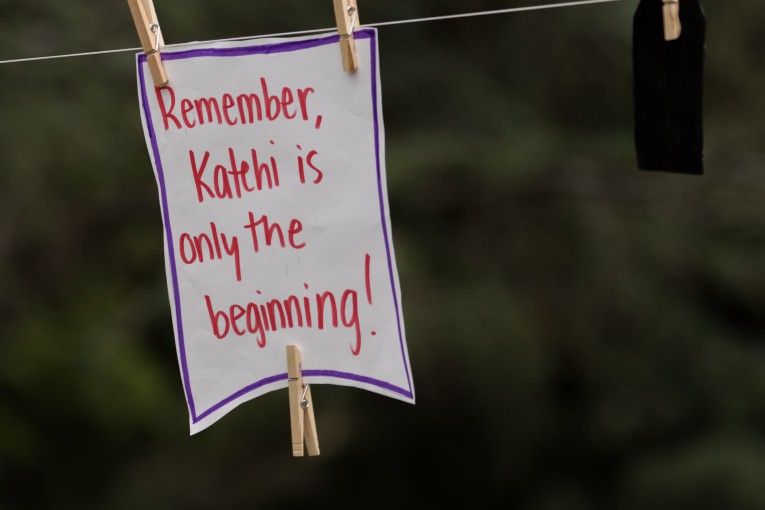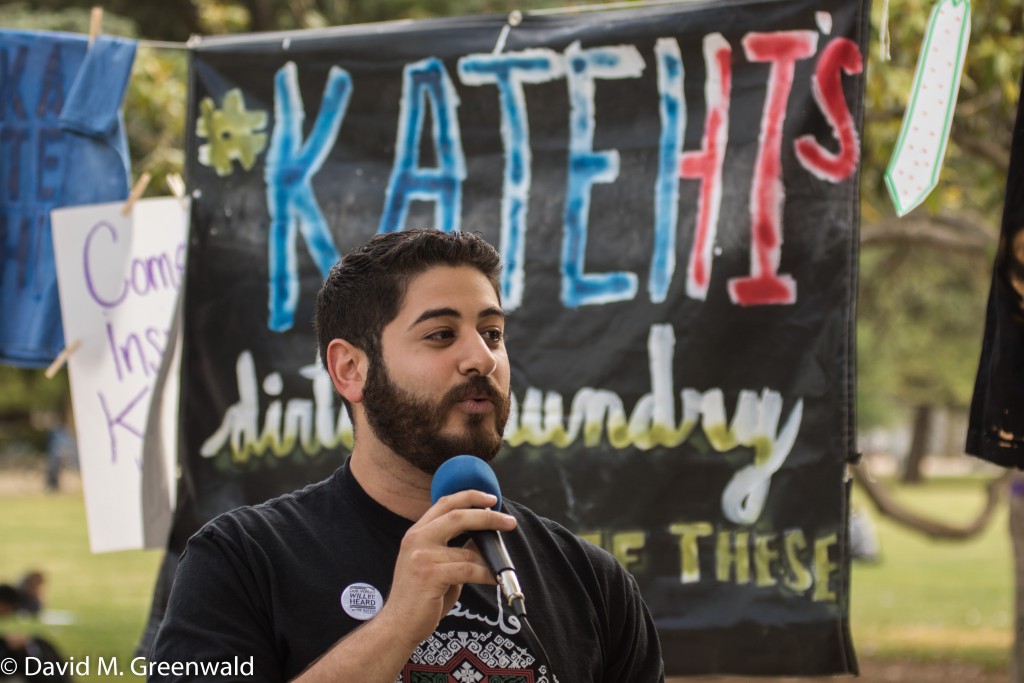

By Ilse Atkinson
On Wednesday the University of California Office of the President announced that Linda Katehi had been removed from her position as chancellor and put on administrative investigatory leave. Many student activists have responded in support of this action, but continue to call for systematic changes to UC administration.
Janet Napolitano, who serves as President of the University of California, said in a statement that Katehi would be removed from her position and subject to an investigation into allegations of misconduct and nepotism, stating that she was “deeply disappointed to take this action.”
On Thursday evening #FireKatehi student activists released a public online statement in response to Katehi’s placement on administrative leave.
“After a 36 day live-in and 57 continuous days of protest, our efforts have proven effective; our actions have refocused public attention and discussion directly on the corruption prevalent in UC Davis’ administrative actions; and, more broadly, our movement has addressed the systematic failure of the University of California’s undemocratically appointed leadership on a statewide level,” the letter states.
The letter promises continued activism, calling the action by administration a “partial victory,” and warning that “unless it is accompanied by systematic changes these injustices will persist.”
“Although Linda hasn’t completely resigned or been fired yet, we hope that this symbolic happening is the catalyst of a greater effort to democratize the University of California to make this a transparent institution we are proud of attending,” the group posted to Facebook.
This week several student government groups at UC Davis have also voiced support for Katehi’ resignation. On Thursday, the ASUCD Senate voted unanimously in support of a resolution calling for her to resign.
“Chancellor Katehi’s long history of physical and disciplinary aggression toward student political activity, irresponsible connection to and pecuniary interest in exploitative corporations and universities, and attempt to cleanse UC Davis’ history of her wrongdoing is wholly unbecoming of the Office of the Chancellor,” the resolution, which was authored by student Senator Joshua Dalavai, stated.
Earlier in the week the ASUCD External Affairs Commission, a student advisory board, also unanimously voted in support of Katehi’s resignation. Joe Nazzal, a member of the External Affairs board and a third-year undergraduate in Comparative Literature and Economics, expressed frustrations with Katehi’s administration.
“Though it’s expected for top university administrators to serve as members of corporate boards, it’s deplorable, regardless of policy, to do so when the goals of said corporations run directly contrary to common sense student interests such as DeVry University and John Wiley & Sons, a textbook company. What’s more, her delayed response to the student body in the wake of these recent scandals is unacceptable and is indicative of a historic lack of transparency under her administration,” he stated.
For some students, the investigation is seen as a positive step towards accountability on behalf of UC administration.
“Finally all the work from the past seven weeks is getting recognized,” stated a second-year Political Science undergraduate. She continued, “They actually recognize. And the president of the University of California, Jane Napolitano, actually recognizes that Katehi has had a really shady history. So I’m glad they’re finally going to investigate that.”
Other students disagree, citing Katehi’s successes as an administrator and arguing that removing her will not increase administrative transparency. The Vanguard reached out to representatives of an online group called “Students For Linda” that has opposed protesters’ calls for Katehi’s resignation.
“We were starting to make progress with the forum and more direct engagement with students, and then suddenly she was pulled out of the picture. And we do not know if Acting Chancellor Hexter will move on more transparency: when will students have access to the budget information, or must students only learn through PRAs?” they asked.
Representatives from “Students for Linda” also criticized Napolitano’s administrative action for lacking student and faculty input, stating, “Napolitano is not an autocrat, the principle of shared governance between faculty and UCOP should be respected on the question of the Chancellor’s future. It may not alter the outcome, but it is an integral part of the process if we’re going to continue to behave as a public institution.”
Some students question whether this administrative action would have been taken if protesters had not staged the sit-in and attracted media attention to Katehi’s alleged misconduct.
“This did not happen because they just found out she was corrupt. This is a direct result of student activism and student noise and students coalescing around this thing that they wanted to happen,” said Scout Faller, a third-year Comparative Literature undergraduate, continuing, “It’s about public image, and it’s about the fact that we tarnished her image enough. Whether or not that leads to actual restructuring that allows student voices to be privileged in that choice is iffy at this point. We don’t know what they’ll do.”